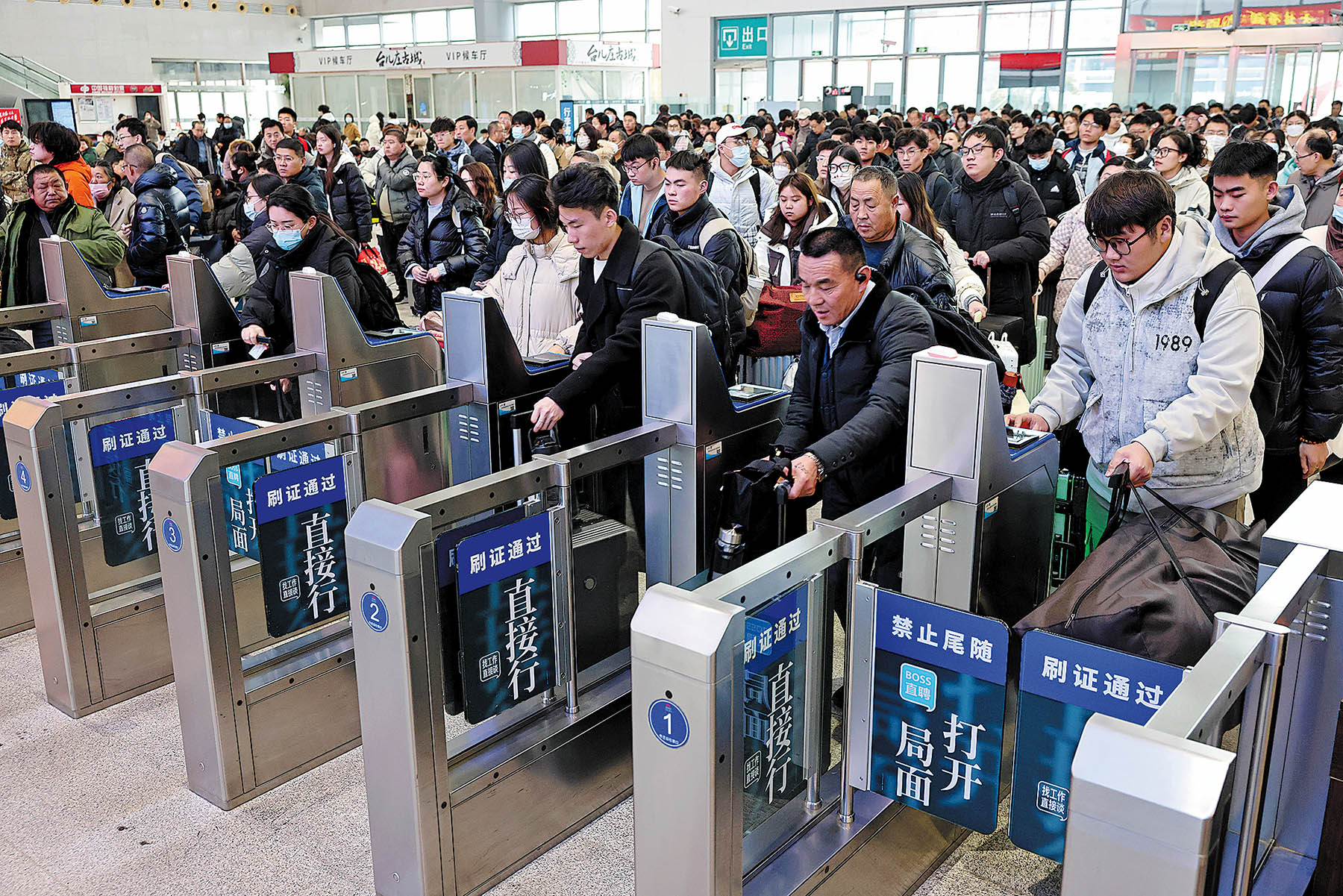
China's Spring Festival travel rush this year, which concluded on Saturday, witnessed over 9 billion passenger trips, setting multiple records and showcasing the country's robust transportation system and its capability to manage the largest annual human migration, the Ministry of Transport said on Sunday.
The 40-day travel period, which began on Jan 14, recorded a total of 9.02 billion passenger trips, marking a 7.1 percent year-on-year increase, the ministry said.
Of these trips, 513 million were made by rail, up 6.1 percent year-on-year, while air travel accounted for 90.2 million trips, up 7.4 percent compared with the same period last year. Both railway and civil aviation passenger volumes reached new highs during the travel rush.
READ MORE: China sees record-breaking inter-regional trips in Spring Festival travel rush
Road travel accounted for 8.39 billion trips, a year-on-year increase of 7.2 percent. Self-driving travelers accounted for 7.17 billion of these trips. Waterways recorded 31.21 million passenger trips, an increase of 7.6 percent compared with the same period last year.
"As Chinese people are getting richer, they are not only enjoying the Spring Festival holiday by returning home but are also finding more diverse ways to celebrate, such as traveling to new destinations," said Liu Dongmei, a researcher at the Ministry of Transport's Research Institute of Highway, adding that during the travel rush, one person is likely to make multiple trips.
Liu Xin, a senior engineer and researcher at the China Academy of Transportation Sciences, said: "Since 2023, the demand for travel during Spring Festival has been high. In the past, people returned home and stayed with their families. But now, some people return home for a couple of days and then use the rest of the holiday to travel with their parents, either within China or to other countries."
Experts also noted that the expansive transportation network, including roads and railways, has eased the pressures of traveling long distances, allowing people to reunite more effortlessly with their loved ones during the most important holiday in China.
Liu Xin said that China's extensive road network, which includes the world's longest expressway, serves as a robust foundation for the growing popularity of self-driving trips.
Highlighting a notable shift in people's travel habits and preferences since 2020, he said: "An increasing number of individuals are choosing to drive home by themselves. The demand for privacy and safety has notably increased, making self-driving trips a top choice."
For rail passengers, the difficulty of buying a train ticket has eased due to China's expanding railway network and improved services.
ALSO READ: CNY travel: 4.8 billion domestic trips estimated taken over Jan 14-Feb 2
According to China State Railway Group Co, the national railway operator, more seats were provided during the Spring Festival travel rush, marking a year-on-year increase of 8.4 percent and setting a new record.
Zheng Fengyun, 68, a native of Chifeng in the Inner Mongolia autonomous region, who lives with his son in Beijing, said he could effortlessly travel home to see his relatives. Although Zheng arrived at the station late due to traffic and missed his train to Chifeng, he managed to get a ticket via phone for another train scheduled for departure three hours later.
"It is so easy now. Even if I miss a train, I can catch another one soon," he said, recalling that in the past, missing a train would cause significant trouble due to ticket shortages and the difficulty of buying one at the station.
"The rail station is also more comfortable now, making it easy to spend hours while waiting for the next train," he added.


